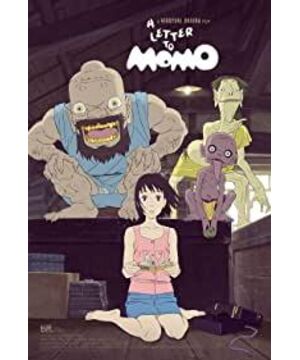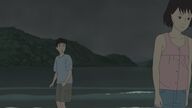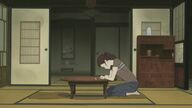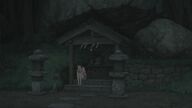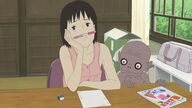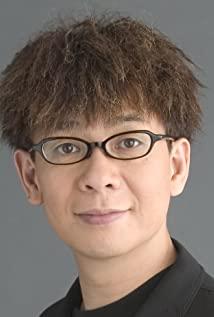Sure enough, "Letter to Peach" still follows the old routine of Japanese animation. It is a small mountain village far away from the hustle and bustle of the city. A single mother moved into her hometown with her child. The small mountain village is quiet and peaceful but hides kind strangers. This happened. I have seen at least five animations of the same type with similar designs. Just looking at the plot introduction can be said to be lackluster, so the texture performance in the plot setting is particularly important here. Whenever we discuss Japanese animation, it is always easy to distinguish it from animation in other countries, and design a new field or another height. This is due to the Japanese people's unique insights into feelings and the emotions of things. To give an example in the film, when Taozi knew that her dying mother was in urgent need of treatment, she went to the next village and town to seek the help of a doctor by herself in the rain. A word or two moved her, and she went with her. It's ridiculous to take it out alone, and it doesn't matter whether you need to go to your door to find a doctor or not. Just the fact that an adult with mature judgment is persuaded by Taozi to ride a bicycle against a typhoon under the premise that both of them may have an accident, etc., can see how unreasonable this design is. Fortunately, the emotional foreshadowing of more than an hour does not seem so far-fetched. The super-strong performance of the characters also highlights the director's solid enough control, from young boys to old grandmothers, and some even have only a few scribble explanations. Not only is it not abrupt, but all of them are very lively. It also adds a lot of points to the sense of substitution in watching.
For me personally, after watching a lot of top Japanese anime and then watching this film carefully, it would be a bit far-fetched to say that it is excellent. But it is not easy to show the unique national style. Coupled with warm-hearted characters, I will give you half a star. Three and a half.
View more about A Letter to Momo reviews


